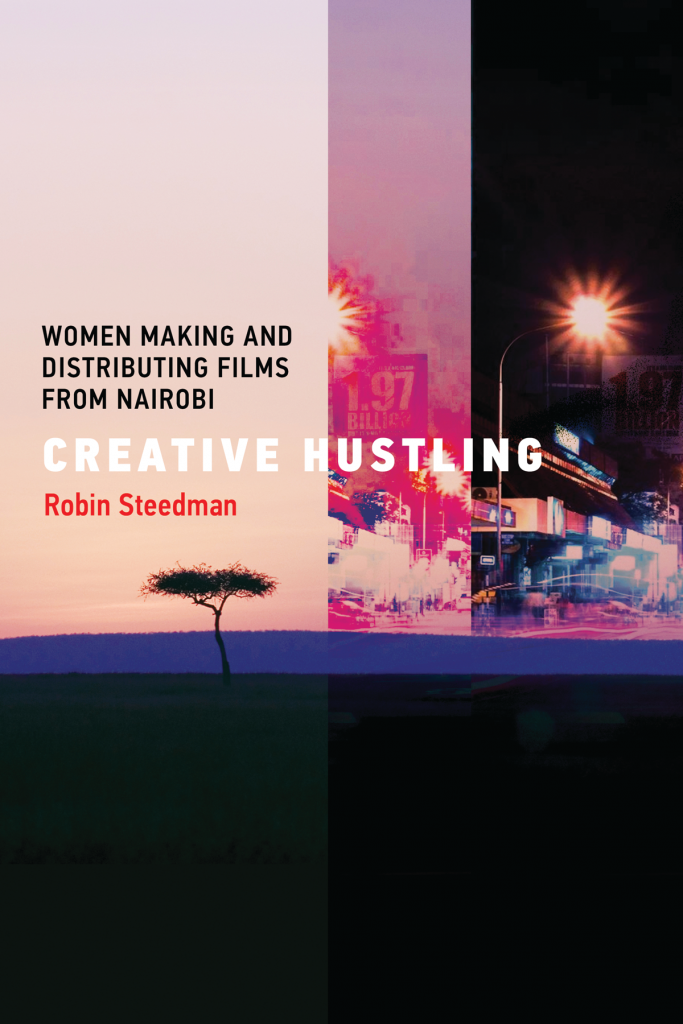The film industry is a notoriously difficult place for women to make a living. Women still struggle to break through the ‘celluloid ceiling’ and make films on their own terms. In Nairobi, Kenya, however, they are flourishing. Why is this the case?
In my new book, Creative Hustling: Women Making and Distributing Films from Nairobi, I answer that question.

I argue that women succeed in building careers in the film industry and making excellent cinema because they hustle.
Nairobi is not an easy place to be a filmmaker: for example, there is no meaningful state support for filmmaking and there is a very small domestic market where films can be screened and sold. Female filmmakers entrepreneurially navigate this precarious context, which is to say they hustle.
A case in point of hustling is film producer Appie Matere producing fifty-six hour-long films for the South African TV company M-Net in a five-month period from a single location. As I say in the book, she described the process as follows:
It was so crazy because all the interiors had to be in this house for the films so that we can be able to work within the budget and within the timeframe […] we had to build sets here for all of them. So this room now … could be a restaurant, in another half an hour you come back and it’s a classroom. And the [handy men] are on standby waiting to paint or whatever it was. … It was crazy.
She succeeded in producing movies in a totally unconventional way. Not all projects made by female filmmakers in Nairobi are successful of course, but what is remarkable in their work is how open they were to experimentation, to making films across genres and formats to keep telling stories.
They continually confronted problems, facing them in innovative ways. Such as when Jackie Lebo described her strategy of dealing with the pervasive film piracy in Nairobi as “leaning in” to piracy rather than trying to change it. She took a long-term view and tried to build a local audience through piracy in the hope this audience would one day turn into a paying market, and in the meantime, she could demonstrate having an audience when she applied for funding for her next production.
Making creative features films—such as famous films like Rafiki (directed by Wanuri Kahiu) and Saikati (directed by Anne Mungai)—is one aspect of the work these filmmakers do, and certainly the most high profile. But it isn’t the only aspect. I argue that understanding how filmmakers in Nairobi come to make these movies requires understanding the full scope of their work—from documentaries, to television, to commissioned and corporate work. Only when we consider this ecosystem in its entirety can we understand how it is that women have come to create such a vibrant industry in Nairobi.
It is through their hustling work that women have created something remarkable.
Creative Hustling is available open access from MIT Press: https://mitpress.mit.edu/9780262544832/creative-hustling/
Robin Steedman is a postdoctoral research fellow at the Centre for Business and Development Studies (CBDS). Her research focuses on work, entrepreneurship, and hustling in filmmaking and other creative industries in Africa. Her current postdoctoral work is part of the major research project ‘Advancing Creative Industries for Development in Ghana’ (ACIG).
